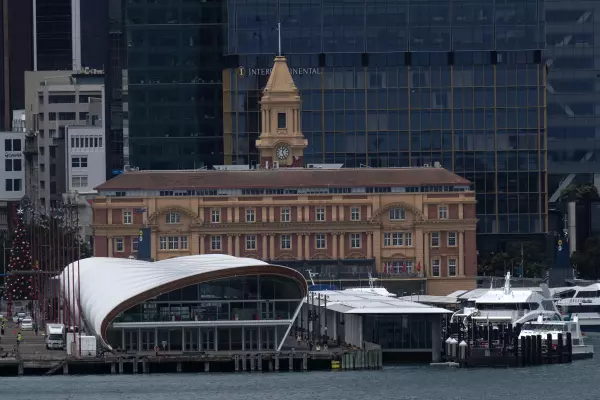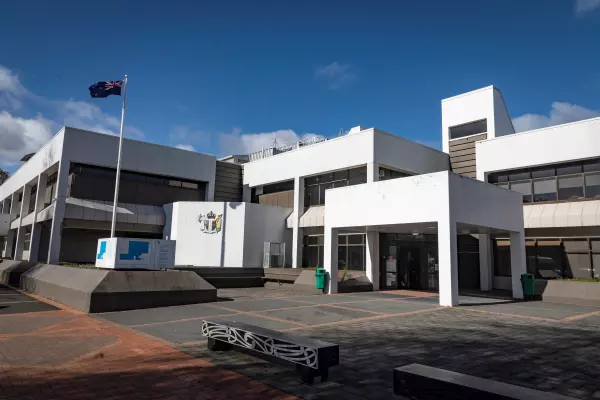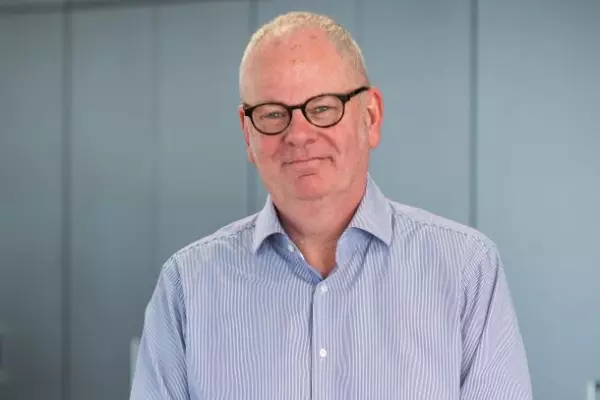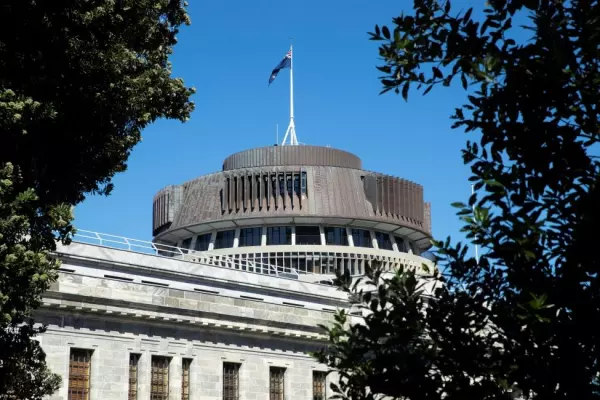When Ralph Hotere died in 2013, Chris Finlayson was asked if he could deliver a eulogy for the celebrated painter. After the service, the then arts, culture and heritage minister got a call from the prime minister, John Key.
He wanted to let his minister know people were getting in touch to say what a brilliant speech Finlayson had given in Dunedin.
It was written by a ministry speechwriter.
“I didn’t alter a word,” Finlayson says. The same couldn’t be said, he says, for some of the “crap” he got from the Department of the Prime Minister and Cabinet (DPMC).
Finlayson, who entered parliament in 2005 and retired in 2019, held several ministerial roles, including attorney-general and minister for Treaty of Waitangi negotiations in the fifth National government.
“I’ve been sharpening my tongue,” the erudite lawyer says as the interview starts.
The former arts minister raises the Hotere speech as an example of the talent present in the public service. While it had a relatively small budget, the Ministry for Culture and Heritage team exceeded all of his expectations, he says.
During his time as minister, Finlayson worked with officials on a range of reforms, including an overhaul of the Historic Places Act. There was also the small matter of New Zealand being made the country of honour at the Frankfurt Book Fair, an accolade the arts aficionado recalls proudly.
“It’s not a few trestle tables in a town hall. It’s been around for 300 years.”
As with every large bureaucracy, though, capabilities vary.
Finlayson is scathing when he talks about the quality of briefs he received from officials ahead of international meetings with fellow attorneys-general and politicians like former UK prime minister Theresa May.
May would turn up with “big thick meeting notes”, he recalls, whereas Finlayson came armed with “nothing, because the material that came from DPMC on intelligence matters and Crown Law on various subjects was, almost without exception, weak and uninspiring”.
“Weak, weak, weak,” he says. More often than not, he wrote his own preparatory notes.
Two foreign appearances stand out: a White House summit on countering violent extremism and an invitation to the United Nations Security Council to discuss terrorism. Officials from the Ministry of Foreign Affairs and Trade, Crown Law and DPMC provided “appalling” briefs, Finlayson says.
Foreign Affairs, in particular, seemed to worry about ministers speaking out of turn.
“The impression I got was that they regard ministers as a nuisance,” Finlayson says. However, he does give credit to ministry officials for their excellent work when he appeared at the international court of justice when NZ was party to a case against Japan for whaling in the Antarctic.
Free and frank
The ability for public servants to provide free and frank advice is meant to be a cornerstone of NZ’s system of government. Officials are required to deliver objective, comprehensive advice without sugar-coating hard truths. Their ability to do this, Finlayson says, largely depends on ministers.
There are three kinds of ministers, as the theory goes: incompetent ministers, semi-competent ministers who unfailingly follow official advice, and ministers who know what they want to achieve and how to do it.
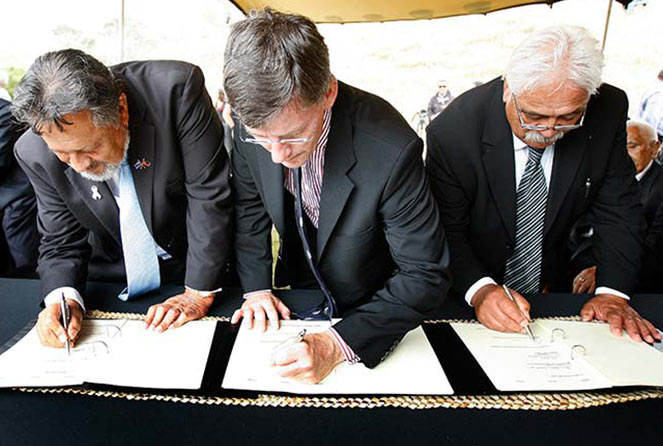 Prolific Treaty of Waitangi settlement signer - Chris Finlayson (Image: Te Ara)
Prolific Treaty of Waitangi settlement signer - Chris Finlayson (Image: Te Ara)Finlayson falls into the latter camp. As minister for Treaty of Waitangi negotiations, he oversaw at least 59 settlements: a record number. His annual priority-setting meetings with Key tended to be extremely short – between 30 seconds and five minutes, Finlayson says. Why? Because he knew what he wanted to achieve: more settlements.
Finlayson was driven, but he could also rely on high-quality work from officials in the Office of Treaty Settlements. He met regularly with the office director, Finlayson says, before going on to name-drop a number of staff who, in his appraisal, did particularly brilliant work on issues such as legal personhood for the Whanganui River and Māori land reform.
Getting things done depends, Finlayson says, on good working relationships between officials and ministers.
Officials need to feel they can be forthright. As an example, Finlayson refers to Lewis Holden, former chief executive of the Ministry for Culture and Heritage.
Holden was someone who had the courage to tell a minister when they were wrong, he says. Dropping his voice to a conspiratorial whisper, Finlayson recalls the time when someone came to his office to tell tales on Holden for questioning the minister’s financial ability. “I said: ‘So what's the problem? He’s right.’”
If officials aren’t emboldened to speak frankly, it damages the integrity of the system, Finlayson believes. Things get missed; problems go unnoticed.
“I do think there are many examples of where officials are impeded from giving full and frank advice because their ministers may not want it,” he says.
“I am a disputatious bastard. I like a good debate. And if I’m wrong, shivers, I want to know about it.”
Anti-terror law reform missed
In early September, a year after the Crown had unsuccessfully tried to charge him with planning a terrorist attack, a man stabbed several people in a west Auckland supermarket.
In response to the incident, the government fast-tracked legislation to amend the Terrorism Suppression Act, a much-maligned law described as unworkable after the botched Urewera raids, to make it a criminal offence to plan a terrorist act.
Finlayson, who was never justice minister (except for a brief period in an acting capacity), says the case for reform was apparent several years ago. As “spymaster” responsible for the intelligence agencies, Finlayson had a keen interest in terrorism-related law and says he raised the issue at the time.
“There is no doubt in my mind that, by 2015, we needed to look at the Terrorism Suppression Act and the offences that were associated with terrorism.”
The Ministry of Justice “failed totally” on terrorism-related policy and law reform, Finlayson says, and the issue wasn’t picked up by the responsible ministers.
“What happened in West Auckland was a result of law reform not happening when it should have.”
In a statement, the justice ministry's policy deputy secretary Rajesh Chhana said its policy work programme was agreed with ministers and based on priorities and resources available at the time.
Amy Adams, who was justice minister from 2014 to 2017, said, as minister responsible for the intelligence agencies, Finlayson would have had a better operational understanding of the act than she did.
“I’m certainly not doubting his view, but I don’t have any recollection of it ever having been raised by officials with me as something that needed to be addressed.”
In defence of the ministry, she said it had a full work programme at the time.
Swinging in the wind
When the press gallery has a minister in their sights, the beleaguered politician will often try to evade responsibility by way of the ‘operational’ line — as in, “that’s an operational matter” for the relevant ministry to answer for.
“It happens all the time,” Finlayson says. “It’s disgraceful behaviour.”
Some agencies like the police are, and should be, independent of elected politicians. Finlayson, for instance, says he would have prosecuted Peter Whittall, the chief executive of the Pike River mine when it exploded, killing 29 men. However, the attorney-general doesn’t have that power.
In another instance, he took the rare step of publicly explaining why the Crown had decided to charge the carers of a three-year-old boy, Moko Rangitoheriri, with manslaughter instead of murder. It wasn’t his decision, but Finlayson wanted to provide an explanation.
When ministers use the operational line to dodge responsibility for issues they should be across, public accountability suffers.
“A minister still has to master the brief and turn up,” Finlayson says.
“To say that something’s operational so an unelected civil servant swings in the wind is not good form.”
As Finlayson sees it, public servants shouldn’t necessarily have a public profile.
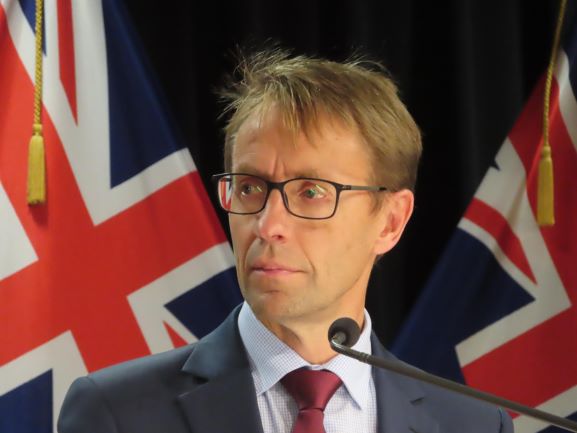 Ashley Bloomfield is "not a minister" and should not act like one, says Chris Finlayson.
Ashley Bloomfield is "not a minister" and should not act like one, says Chris Finlayson. It’s September when we talk, and Ashley Bloomfield, the director-general of health, has just given a round of morning interviews saying the government is actively considering alert level 4 restrictions for Auckland.
To Finlayson, that’s an example of a public servant talking out of turn and pre-empting what should be a cabinet decision.
“Ashley Bloomfield is not a minister.”
On public sector reform, Finlayson says it would be helpful to better streamline government so one minister is responsible for related topics. As an example, he suggests rolling together a number of functions such as police, border security and the intelligence agencies under a minister for the interior.
“I think there’s a lot to be said for a more coherent allocation of portfolios,” he says.
“With the greatest respect, I know a lot of people overseas laugh at us that the minister of foreign affairs is also the minister of local government.”
Do you know something we should know? Email BusinessDesk's public sector investigation team: [email protected].







